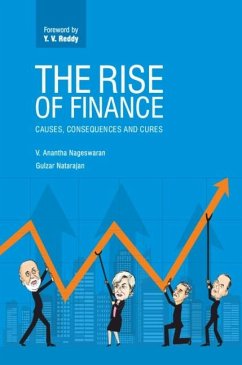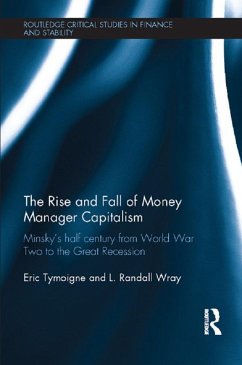
Finance Capitalism and Germany's Rise to Industrial Power (eBook, PDF)
Versandkostenfrei!
Sofort per Download lieferbar
38,95 €
inkl. MwSt.
Weitere Ausgaben:

PAYBACK Punkte
19 °P sammeln!
Based on a wide array of data collected by the author, this book uses clear theoretically motivated economic analysis to explain the structure, performance, and influence of universal banks and securities markets on firms during industrialisation. The German universal banks played a significant but not overwhelming role in the ownership and control of corporate firms. Banks gained access to boards via a confluence of their underwriting and brokerage activities, the legal phenomena of bearer shares and deposited voting rights, and the flourishing securities markets of the turn of the twentieth ...
Based on a wide array of data collected by the author, this book uses clear theoretically motivated economic analysis to explain the structure, performance, and influence of universal banks and securities markets on firms during industrialisation. The German universal banks played a significant but not overwhelming role in the ownership and control of corporate firms. Banks gained access to boards via a confluence of their underwriting and brokerage activities, the legal phenomena of bearer shares and deposited voting rights, and the flourishing securities markets of the turn of the twentieth century. In general, bank relationships had little impact on firm performance; stock market listings, or ownership structure, were more important. The findings show that securities markets can thrive within a civil-law, universal-bank system and suggest that financial system complexity can favour rapid industrial expansion.
Dieser Download kann aus rechtlichen Gründen nur mit Rechnungsadresse in A, B, BG, CY, CZ, D, DK, EW, E, FIN, F, GR, HR, H, IRL, I, LT, L, LR, M, NL, PL, P, R, S, SLO, SK ausgeliefert werden.













